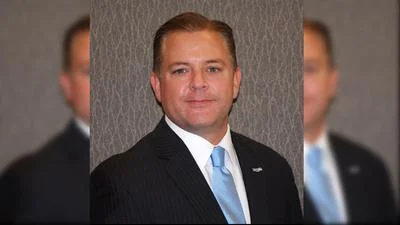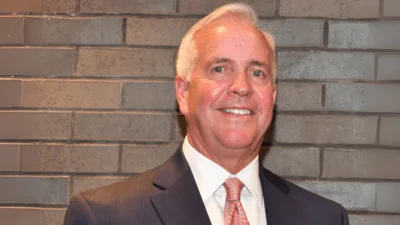Homer Township Supervisor and Will County Board Member Steve Balich | Steve Balich | X (formerly Twitter)
Homer Township Supervisor and Will County Board Member Steve Balich | Steve Balich | X (formerly Twitter)
In the wake of a significant drug bust in McHenry County, Homer Township Supervisor and Will County Board Member Steve Balich has voiced staunch criticism of current U.S. immigration policies, arguing for stricter controls to mitigate what he describes as a national crisis.
“The disaster we are facing as a nation is the open border. Illegals are not better than citizens and do not belong here,” Balich told the Will County Gazette.
Balich’s comments come after the arrest of two Mexican nationals, Enrique Navar-Favela and Robert Cristian Chavez-Salgado, who were found in possession of 17 kilograms of cocaine and fentanyl valued at $425,000 at a Super 8 motel in McHenry County.
The two men face serious felony charges including possession of controlled substances with intent to distribute. Navar-Favela, without U.S. identification, indicated plans to return to Mexico soon.
Concerns over the lethal potency of fentanyl were underscored during court proceedings by Judge Carl Metz.
“When an illegal is arrested they are treated like they are special. Citizens get the book thrown at them when any law is broken. U.S. policy is insane. Build the wall!!!!” said Balich.
Balich further expressed deep concerns over the implications of crime linked to unchecked immigration, particularly criticizing the treatment of undocumented individuals compared to American citizens.
"Americans have to pay more in taxes so the massive numbers coming illegally by airlines, the border both North and South can have food, medical, cash, cell phones, and shelter at no cost," he said.
Regarding solutions, Balich proposed a stringent approach to immigration control.
"I believe the answer is extremely difficult but necessary,” he said. “First stop anyone from coming here from any country in the world without a citizen sponsor who will be responsible for guaranteeing the person coming here has a job, and a place to live. Illegals need to be found and sent back to their own country. They can then seek to come here legally."
He also addressed the issue of birthright citizenship asserting the need for residency requirements and proper vetting procedures to deter criminals and lessen fiscal burdens for taxpayers.
"Anyone who just comes illegally and has a baby can't call that child a citizen just because the child was born here," Balich said. "There needs to be some residency requirement."
Balich accused the current administration of facilitating illegal immigration to bolster electoral advantages.
"With no vetting and an open policy the consequence is crime, taxes, and an extreme drain on all our systems," he said. "This seems done by the group in power to make all these illegals voters."
A 2024 Drug Enforcement Agency report on the illicit drug trade paints a grim picture of what it calls the "Deadliest Drug Crisis Ever" in America, focusing particularly on Chicago and its surrounding areas.
The DEA report reveals that an astonishing 80% of all street-level drugs in Chicago are thought to be traced back to the Sinaloa cartel.
Fentanyl has emerged as the most severe threat, with Mexican cartels, notably Sinaloa and New Generation, dominating the trafficking landscape.
The report highlights the alarming trend of digital drug dealing, warning about the dangers of purchasing pills through social media platforms, which often contain deadly substances like fentanyl.
Crimes associated with organized crime, frequently tied to foreign drug cartels in the state, such as human trafficking, have seen a sharp rise, with drug-related offenses at the forefront.
Since 2013, Illinois has witnessed a staggering 3,341% increase in overdose deaths attributed to synthetic opioids such as fentanyl.





 Alerts Sign-up
Alerts Sign-up